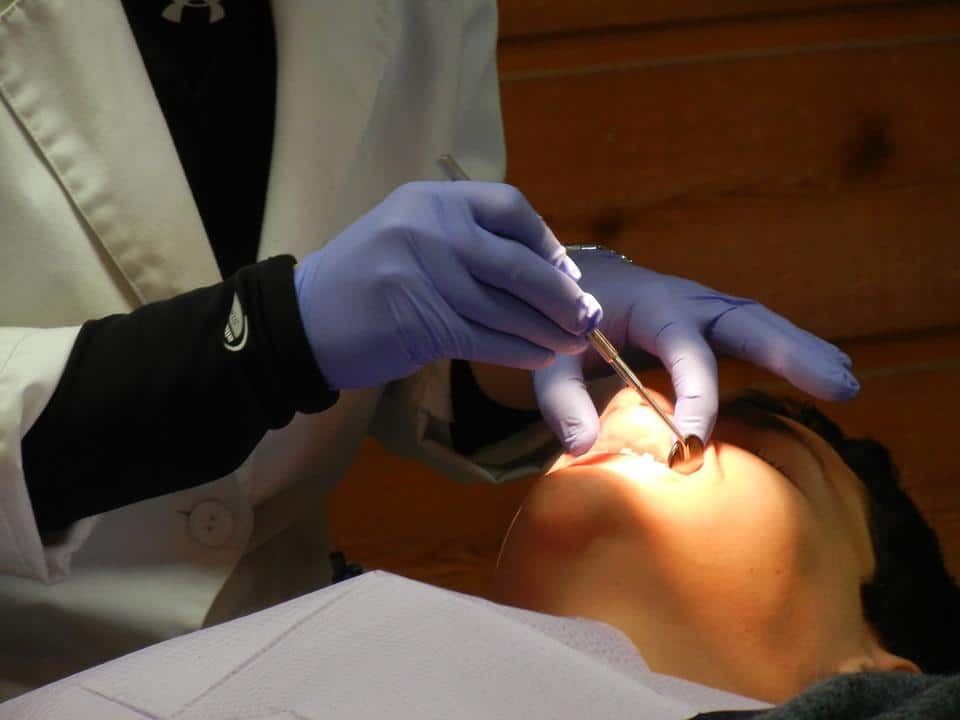Dentistry vs. Medicine: Which One Should You Choose?

Entry Requirements for Dentistry vs. Medicine
To successfully apply to study dentistry in the UK, candidates will need to have at least five GCSE passes, including English, Maths and Science and a minimum of three A levels, including chemistry and biology, with grade ranges between AAA to ABB. You may also be asked to sit the UK Clinical Aptitude Test (UCAT).
For medicine, you will usually need to have five GCSEs at grades A* or A, including English and mathematics, and at least a grade B in Science subjects. You will also need three A levels at grades AAA or AAB in chemistry and either biology, physics, or mathematics as well as two further highers in most subjects. Depending on the university you apply to, you will be asked to complete the UCAT or the Biomedical Admissions Test (BMAT). What’s more, you may also need to provide a personal statement.
Candidates who have a degree in a related field may be eligible for graduate entry. Because candidates tend to be at a more advanced level, they can start their studies at a later year. Several graduate entry programmes in the UK require candidates to sit the GAMSAT admissions test.
Applying to study medicine or dentistry in one of Study Medicine Europe’s partner universities is easy. To learn more about the entry requirements for your chosen programme, simply check the admissions section on the university’s page. Alternatively, you can also get more information by contacting our support team.
Length of Studies
It typically takes about ten years to become a doctor in the UK. Medical training in the UK consists of:- a five-year medicine degree
- a two-year foundation programme
- between five to eight years of specialist training (the duration of the programme will depend on your chosen field)
- A five-year dentistry degree
- A 12-month dental foundation training
- An annual minimum of 250 hours CPD every five years
Those who undertake the Graduate Entry pathway can fast-track their studies thereby accelerating their journey to becoming a fully-fledged doctor or dentist.

What Skills Do You Need to Be a Doctor or a Dentist?
Unsurprisingly, there is considerable overlap in the skills required to be a doctor or a dentist. You need a thorough knowledge of science and physiology, excellent problem-solving skills and a positive bedside manner. However, there are some skills which are particular to either field.As a dentist, you will be spending a lot of time doing hands-on work in patient’s mouths. As such, manual dexterity, technical precision and good eyesight are key. You will also be dealing with some nervous patients, so it’s essential to have strong communication skills and a reassuring manner. What’s more, many dentists run their own practices so some business acumen is also required.To be a successful doctor, you will need to be able to stay cool in high-pressure situations and have a compassionate bedside manner. Resilience, dedication, teamwork skills, and attention to detail are also key. As a doctor, you will have to maintain an ongoing commitment to upskilling so it’s also important to have a keen interest in learning.How Much Do Doctors & Dentists Make in the UK?
As a doctor, your salary will depend on your experience and training. Data from NHS Careers breaks down average doctor salaries in the UK as follows:- Those completing Foundation year one training typically earn £27,146 and this rises to £31,422 in year two.
- For doctors undertaking specialist training, salaries start at £37,191 and progresses to £47,132.
- A fully qualified specialist doctor can expect a basic salary ranging between £39,060 to £72,840.
- Depending on their experience, annual earnings for consultants range between £77,913 to £105,042. If time permits, consultants can supplement this by working in private practice.
Unlike doctors, dentists can start earning pretty soon after they’ve qualified. Many dentists choose to mix private and public work and this can affect how much money they make. Dentists with the NHS can earn between £38K to £110K depending on whether they work in community dental service, NHS trust hospitals, or in dental public health. Experienced specialist consultants with expertise can make even more, with average salaries ranging from £76,761 to £103,490. Those who decide to go wholly private can make over £140,000.
Career Opportunities for Doctors & Dentists
Upon completion of the dental foundation training year in the UK, you can either start working as a general dental practitioner or choose to specialise. Some examples of dental specialisms include oral and maxillofacial surgery, orthodontics, paediatric dentistry, and restorative dentistry. You also have the option of setting up your own practice, which is a great opportunity for those who have an entrepreneurial streak.Trained doctors can take their pick from a wide range of career opportunities. While most UK doctors work within the NHS, there are still plenty of other employers to choose from such as the armed forces, overseas aid agencies, prisons, residential nursing homes, research institutes, and air ambulance services. If you have a strong academic record, you may also pursue a career in clinical academic work.Dentists vs. Doctors: Who Has the Better Work-Life Balance?
As a hospital doctor, your work-life balance may suffer as a result of irregular hours, long shifts, and on-call responsibilities. This is especially the case for trainee doctors who have to carve out time for both work and study.If a good work-life balance is important to you, then dentistry would probably be the better option. This is because dentists are often self-employed and as such, they can choose their own working hours.How to Choose Between A Career in Dentistry or Medicine
When trying to choose between dentistry and medicine, there are a few things you can do to make the decision-making process a little easier:- 1. Make a list of your values, interests, skills and qualities. Reflect on whether these are more suitable for a career in medicine or dentistry.
- 2. Visit the NHS Careers website to learn about what working in either field entails.
- 3. Complete some work experience in both fields.
- 4. Talk to some professionals about what it is like to work in medicine or dentistry.



















